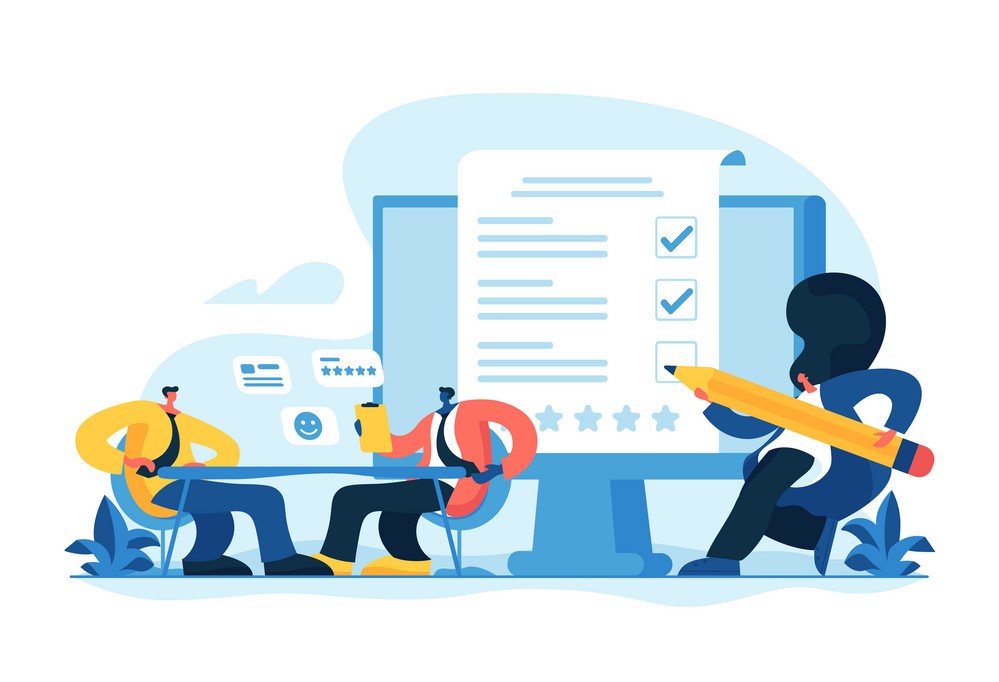It isn’t easy to assess the employees’ skills needed for their growth and development during the recruitment process. Resumes and interviews only give basic information about candidates’ technical abilities. Employee Assessment tools help in objectively identifying soft skills and personality.
The purpose of an employee tool is to measure job performance. These tools give a deeper insight into employees’ performance and the areas that might require improvement. The assessment data helps in building the skill gap.


Types of Assessment Tools
There are various types of employee assessment tools that organizations use to evaluate the employee’s performance and productivity. These include mental ability tests, work personality indexes, employee reliability inventory, biodata inventories, etc.
Mental and Physical Ability Tests
Mental and physical ability tests are generally for those occupations that do not possess a professional degree or advanced degree. It helps in measuring the abilities to learn and perform a particular job role or responsibility. Mental abilities include verbal, quantitative, and spatial abilities, whereas Physical ability tests have strengths, endurance, and flexibility. The general ability test measures the broader perspective, i.e., verbal, mathematical, and reasoning skills. Specific ability tests measure specific physical and mental activities such as reaction time, written comprehension, etc.
Achievement Tests
Achievement tools measure an employee’s current knowledge or skills essential for a company’s growth and productivity. They are generally of two types:
The knowledge test is specific and determines an individual’s knowledge of the roles and responsibilities of a particular job role. They are generally computer-based and have higher validity.
Fears, Careers, Robot Peers: PyjamaHR Support Pros Talk AI
Join us for an authentic conversation with members of Help Scout’s own customer service team as they discuss the ways AI is changing their jobs, how they really feel about it, and how they’re taking charge of their own career direction.
Work-sample and performance tests are highly job-related. They are generally function-related tests and are considered to be fairer than other types of tests. However, they are pretty expensive.
Biodata Inventories
Biodata Inventories are questionnaires that collect employee data such as biographical information, such as educational background, work experiences, skills, etc. They predict job performance and tenure. They can directly capture a person’s past behaviour, probably the best predictor of their future actions. In addition, reference checks and resumes can verify the information and detect any discrepancies and misinformation.
Personality Inventories
Personal characteristics are of vital importance in any employment. Personal Inventories are designed to evaluate motivation, self-confidence, work-oriented, etc. It is a self-assessment tool that gives an insight into the employees’ strengths and weaknesses. It is used to determine the dimensions of an applicant’s personality and provides information identifying a mental disorder or impairment.
Education and experience requirements (including licensing and certification)
Almost all the job roles require minimum educational qualifications and experience in the same field. The eligibility for a job role may specify that candidates must have a graduate degree with 0 to 1 year of experience. Different job roles require additional qualifications and experience. For example, for the role of a senior accountant, the minimum qualification requirement may be an M.Com with 10+ years of experience in the same field. This should be justified by business necessity.
Popular Employee Self Assessment Tool
Employee self-assessment tools provide a deeper insight into employees’ strengths and weaknesses that affect their work. These tools help in gathering information related to values, preferences, interests, etc. Various self-assessment tools help in evaluation, such as work-related values, interests, abilities, etc.
Work-Related Values
To work in any organization, one must inculcate the work values and principles. This self-assessment tool ascertains if a person possesses work-related values and principles such as honesty, integrity, reliability, positivity, delivering quality work, etc. Work-related values can help plan a career or assist in making a career change.
Interests
This self-assessment tool determines an employee’s interest and what they like the most. People who have the same job roles and responsibilities often have the same interests. Interests are a significant factor to determine the career choice of an individual.
Personality Types
This self-assessment tool helps determine the type of personality of an individual, a combination of social and professional drives, needs, and attitudes. Personality type helps know whether one is fit for a specific kind of job role and the working environment.
Abilities
Although genetically acquired, abilities can also be developed and polished with training and practice. It helps in determining whether one can learn new skills quickly or not. Some examples may be language, logical thinking, etc. Abilities help in knowing whether one is suitable for a specific type of work.
Benefits of Self-Assessment Tools
Self-assessment tools:
- give a better perception and a deeper insight into one’s performance.
- Make employees feel more confident of their skills and abilities.
- Enhances capacity building by continuously improving themselves.
- Make an employee feel more valued and motivated.

